Emotional intelligence training is all but manditory in today’s workplaces, significantly influencing team collaboration, communication, and overall productivity.
Coined by psychologist Daniel Goleman, emotional intelligence encompasses the ability to recognize, understand, and manage one’s own emotions and effectively navigate the emotions of others. With workplaces becoming increasingly complex and diverse, emotional intelligence training for employees is no longer optional but vital.
Interest in emotional intelligence coaching and training programs has surged as organizations recognize its tangible benefits. Companies are investing considerable resources into training to foster emotional intelligence among employees, aiming for improved employee satisfaction, retention, and organizational efficiency.
However, despite its clear advantages, several misconceptions persist. This blog addresses and debunks three prevalent myths about emotional intelligence training for employees, helping decision-makers better understand Emotional Intelligence training’s true value.
Myth #1: Emotional Intelligence Training Is Only Useful for Leaders
Emotional intelligence training for employees is often misunderstood as beneficial exclusively for senior executives or team leaders. However, emotional intelligence coaching is invaluable at every organizational level, significantly enhancing interpersonal interactions, problem-solving abilities, and teamwork across all roles.
What is emotional intelligence, exactly? According to Goleman’s theory, Emotional Intelligence consists of self-awareness, self-regulation, motivation, empathy, and social skills—skills beneficial to everyone in an organization, regardless of their hierarchical position.
When frontline employees, middle managers, and support staff undergo Emotional Intelligence training, companies experience substantial improvements in customer service, conflict resolution, and employee morale.
For example, customer-facing roles greatly benefit from emotional intelligence training as employees become adept at managing challenging interactions and empathizing with customer concerns, resulting in enhanced client satisfaction.
Companies like Marriott and Starbucks have implemented emotional intelligence training for employees company-wide, witnessing considerable improvements in customer service quality and employee retention.
Data further supports the broad effectiveness of emotional intelligence training for employees. Research shows organizations that provide Emotional Intelligence training at all employee levels experience up to a 20% improvement in productivity and significant reductions in workplace conflicts.
Myth #2: Emotional Intelligence Training Cannot Be Quantified
Another widespread misconception is that emotional intelligence training for employees is intangible and its effectiveness cannot be measured. Contrary to this belief, organizations can indeed track Emotional Intelligence training outcomes using concrete metrics.
Employee engagement, turnover rates, conflict incidence, and team productivity are reliable indicators reflecting emotional intelligence improvements. Additionally, performance reviews, employee satisfaction surveys, and standardized emotional intelligence assessments can offer tangible insights into progress made through Emotional Intelligence training.
For instance, organizations such as Google and Microsoft regularly measure employee engagement and satisfaction before and after implementing Emotional Intelligence training initiatives. Google’s Project Aristotle identified emotional safety, closely linked with emotional intelligence, as a key predictor of high-performing teams.
By tracking these measurable outcomes, organizations can validate and continuously refine their emotional intelligence coaching programs.
Myth #3: Emotional Intelligence Training Is Expensive and Time-Consuming
The myth that emotional intelligence training is prohibitively expensive and demanding in terms of time investment frequently discourages organizations from adopting these programs. However, today’s emotional intelligence training for employees offers affordable, scalable, and flexible solutions designed to fit various budgets and timelines.
Virtual workshops, microlearning modules, and self-paced online courses have dramatically reduced costs and made emotional intelligence training accessible even to smaller businesses. Moreover, the returns on investment from Emotional Intelligence training significantly overshadow initial expenditures. Enhanced productivity, lower turnover, reduced conflict, and improved workplace relationships deliver substantial cost savings in the long term.
Industry experts like Daniel Goleman emphasize that investing in emotional intelligence training can yield returns many times greater than the initial outlay. Organizations investing wisely in Emotional Intelligence training frequently report higher profitability, increased employee loyalty, and competitive advantages in talent attraction.
The Value of Hiring an Expert Emotional Intelligence Coach
Engaging specialized emotional intelligence coaches provides organizations with focused expertise that significantly accelerates the development and integration of Emotional Intelligence skills among employees. Professional coaches offer tailored emotional intelligence coaching programs designed to address specific organizational and individual employee needs.
Expert Emotional Intelligence coaches are adept at identifying organizational emotional intelligence gaps, crafting custom training interventions, and guiding employees through targeted exercises and real-world scenarios. Companies such as Champion PSI have helped numerous businesses realize substantial transformations by leveraging the expertise of specialized emotional intelligence coaches.
The personalized attention, structured feedback, and targeted guidance provided by expert coaches enable faster skill acquisition and greater long-term retention of emotional intelligence principles.
Champion PSI’s Own Emotional Intelligence Training Expert: Melinda East

We’re proud to introduce Melinda East, Champion PSI’s executive coach with deep expertise in Emotional Intelligence (EQ).
Melinda brings decades of experience coaching executives across industries, guiding leaders through the complexities of performance, communication, and organizational change. While she coaches on all facets of leadership, her superpower lies in cultivating emotionally intelligent cultures — a game-changer for organizations looking to unlock sustainable growth.
In Melinda’s words:
“An emotionally intelligent culture within a business organization is one where emotional intelligence is valued and integrated into daily operations and interactions. This culture emphasizes the importance of understanding and managing emotions — individually and collectively — to foster a positive and productive work environment.”
Through her coaching, Melinda helps leaders intentionally build environments where emotional intelligence isn’t just a buzzword — it becomes a foundation for higher business performance, stronger change adoption, elevated team dynamics, and greater job satisfaction.
If you’re navigating transformation, scaling your team, or simply want to lead with greater impact, Melinda’s approach to EQ could be the key to unlocking your next level.
Practical Tips for Implementing Emotional Intelligence Training
- Clearly communicate the value and objectives of emotional intelligence training to employees.
- Incorporate Emotional Intelligence training into regular professional development initiatives to ensure continuous improvement.
- Encourage practical application of Emotional Intelligence skills through regular feedback sessions and peer interactions.
FAQs
What are the 5 principles of EQ?
According to Goleman, the five core principles are self-awareness, self-regulation, motivation, empathy, and social skills.
What is Goleman’s theory?
Daniel Goleman’s theory emphasizes emotional intelligence as a combination of personal and interpersonal skills crucial for success.
Who needs emotional intelligence training?
Every employee benefits from Emotional Intelligence training, regardless of their role or level in the organization.
How quickly can Emotional Intelligence training show results?
Positive changes can often be observed within weeks, though sustained improvement requires consistent practice and reinforcement.
Is emotional intelligence training a one-time event?
Effective emotional intelligence training is ongoing, integrated into regular professional development.
3 Myths of Emotional Intelligence Training for Employees: Conclusion
Debunking these myths underscores the genuine importance of emotional intelligence training across all organizational levels. Investing strategically in Emotional intelligence training for employees, particularly through engaging expert coaches, significantly enhances organizational effectiveness, employee satisfaction, and overall profitability.
Explore emotional intelligence training opportunities at Champion PSI, and consider how expert emotional intelligence coaching could transform your organization’s culture and success.










